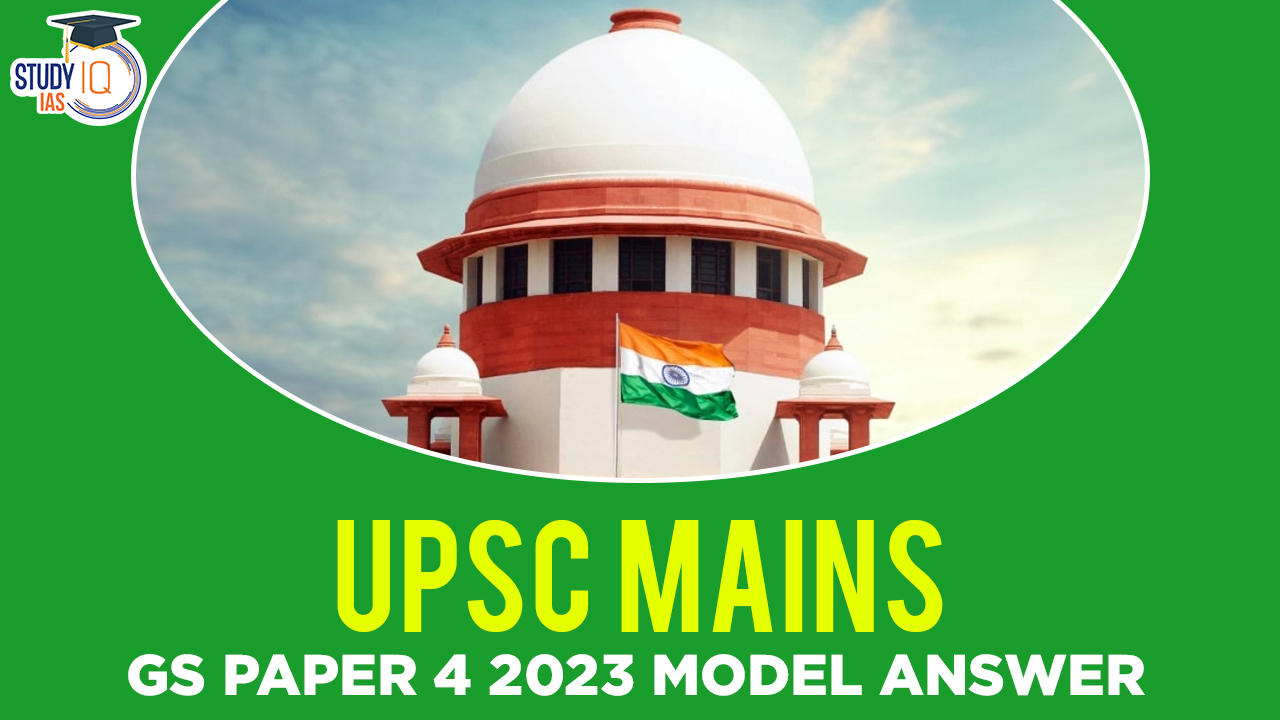Q.5 (a) Is conscience a more reliable guide when compared to laws, rules and regulations in the context of ethical decision making? Discuss. (10m) Theory
Introduction:
Mahatma Gandhi once famously asserted, “There is a higher court than courts of justice, and that is the court of conscience. It supersedes all other courts.” Conscience, often described as our inner moral compass, guides us to distinguish right from wrong.
Body:
Conscience as a more reliable guide:
- Morally courageous choices: e.g. Oskar Schindler saved over a thousand Jewish refugees during World War II by employing them in his factories, driven by his conscience.
- Analysing Complex Situations: Conscience helps us navigate complex ethical dilemmas.
- E.g.: Edward Snowden exposed government mass surveillance programs, following his conscience’s call to reveal violations of citizens’ privacy rights.
- Avoiding Conflicts of Interest: E.g.: Nelson Mandela prioritised reconciliation and the greater good as South Africa’s President after apartheid, guided by his conscience. It assists in putting the public interest above personal gain.
- Balancing Ethics and External Pressures: Conscience should prevail even when facing external pressures.
- E.g.: During the Nuremberg Trials, some Nazi officials claimed they were following orders, but Adolf Eichmann’s conscience should have resisted immoral commands.
- The Subjectivity of Conscience: Conscience is influenced by our individual values and beliefs.
- E.g.: Dr. Martin Luther King Jr. advocated for civil rights and nonviolent protest, driven by his Christian faith and belief in justice.
- Diverse Perspectives: E.g.: Albert Einstein and Bertrand Russell took conscientious stands against nuclear weapons, while others argued for their necessity during the Cold War. Conscience can lead to different principles and behaviours.
However, laws, rules and regulations supplement conscience in making ethical decisions:
- Protection of Fundamental Rights: India’s Constitution guarantees fundamental rights to its citizens. Laws and regulations, such as the Right to Information Act, 2005, and the Protection of Women from Domestic Violence Act, 2005, protect these rights.
- Preventing Discrimination: E.g. The Scheduled Castes and Scheduled Tribes (Prevention of Atrocities) Act, 1989, and the Sexual Harassment of Women at Workplace (Prevention, Prohibition, and Redressal) Act, 2013.
- Environmental Protection: The Environmental Impact Assessment (EIA) notification under the Environment (Protection) Act, 1986, requires industries to assess and mitigate their environmental impact. Violations of EIA norms have led to legal actions.
- Corporate Governance: The Companies Act, 2013, and the Securities and Exchange Board of India (SEBI) regulations promote corporate governance and ethical conduct.
- Healthcare Ethics: Regulations in the healthcare sector, such as the Clinical Establishments (Registration and Regulation) Act, 2010, ensure ethical medical practices.
- Preventing Corruption: The Prevention of Corruption Act, 1988, and the Whistleblower Protection Act, 2014, aim to prevent corruption and protect whistleblowers.
Conclusion:
The interplay between conscience and legal frameworks in ethical decision-making is akin to a symphony where individual principles harmonise with societal norms. As Gandhi envisioned, the court of conscience remains supreme, but it’s enhanced and fortified by the legislative instruments that underpin a just and ethical society.
Check out the UPSC Mains GS Paper 4 2023 Analysis with detailed expatiation of the topics of Mains GS Paper 4 By the Study IQ Experts





















 WhatsApp
WhatsApp